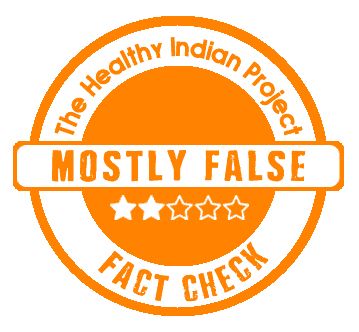Last Updated on January 23, 2024 by Aditi Gangal
Quick Take
A social media article has claimed that people who stay up late at night are at risk of early death. We fact-checked and found the claim to be Mostly False.

The Claim
A Facebook post claims that people who stay up late might experience a shorter lifespan, as per a study. The post further claims that such individuals are at a higher risk of adopting unhealthy habits. This includes increased alcohol and tobacco consumption, and are less likely to achieve eight hours of sleep. The study concludes that those who are definite night owls have a 9% higher likelihood of mortality from any cause compared to early risers.
We have attached a screenshot of the post below:

Fact Check
Why do people stay awake late at night?
People stay awake late at night due to work or study commitments, social activities and personal preferences. Other factors include night owl tendencies, entertainment, insomnia, shift work, stress, cultural norms, and the influence of technology.
It is important to balance nighttime activities with the need for a consistent and adequate sleep schedule for overall well-being.
What are the pros and cons of staying up late?
Staying up late can have both positive and negative effects. On the positive side, some people find increased productivity and creativity during quiet nighttime hours. However, chronic sleep deprivation can lead to impaired cognitive function, health risks, and mental health issues. Balancing late-night activities with sufficient sleep is essential for overall well-being.
Can staying up late at night put people at a higher risk of early death?
Not exactly. There is evidence to suggest that people who consistently stay up late at night and have irregular sleep patterns may be at a higher risk of certain health problems. This could potentially lead to a higher risk of early death. But it is important to emphasize that not everyone who stays up late will experience these negative health effects. Genetics, lifestyle choices, and other individual factors play a role in determining one’s susceptibility to these risks.
There have been some studies that suggest a link between staying up late at night and early death. However, more research is needed to confirm this link and to understand the underlying mechanisms.
One study found that people who slept less than 6 hours per night were more likely to die earlier than those who slept 7-8 hours per night. Another study found that people who had irregular sleep schedules were more likely to die from heart disease than those who had regular sleep schedules.
But these studies are observational, which means that they cannot prove that staying up late at night causes early death. It is possible that there are other factors that explain the link between staying up late and early death. These factors can be poor diet, lack of exercise, or underlying health conditions.
We further researched and found evidence that has linked irregular sleep patterns, including staying up late and having a disrupted circadian rhythm (the body’s internal clock), with an increased risk of health issues such as obesity, diabetes, cardiovascular diseases, and mental health problems. These health conditions, in turn, can contribute to a higher risk of early mortality.
However, it is important to note that causation and the exact mechanisms involved are not fully understood, and individual factors can vary widely.
To promote better overall health and reduce the potential risks associated with staying up late, it is advisable to establish a consistent sleep schedule, prioritize good sleep hygiene practices, and seek medical advice if you have persistent sleep problems or concerns about your sleep patterns and their impact on your health.

General Physician Dr. Kashyap Dakshini informs, “People who stay up late at night are more likely to die younger as compared to those who rise early in the morning even after adjusting factors like age, sex, ethnicity, body mass index, sleep duration, socioeconomic status and health problems. This is attributed to diseases related to habits like smoking or alcohol consumption, as these habits are amongst those who are night owls, who stay up late night. So the risk disappeared once the researchers accounted for smoking and alcohol consumption.”
THIP MEDIA has dispelled myths about artificial sweeteners causing sudden deaths from heart attacks. In additional fact-checks, we refuted claims of Vitamin K injections being poisonous to babies and debunked the idea that vaccines cause sudden infant death syndrome (SIDS).
Disclaimer: Medical Science is an ever evolving field. We strive to keep this page updated. In case you notice any discrepancy in the content, please inform us at [email protected]. You can futher read our Correction Policy here. Never disregard professional medical advice or delay seeking medical treatment because of something you have read on or accessed through this website or it's social media channels. Read our Full Disclaimer Here for further information.

